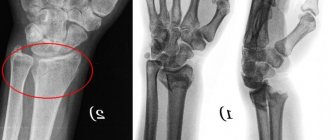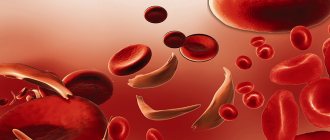Psychopathy is a pathology in which a disharmonious personality pattern is manifested, in which a person’s adaptation is impaired, the totality and stability of psychopathic characteristics are noted, which are irreversible.
- Characteristics of the disease
- Etiology (causes)
- Classification of psychopathy Constitutional-depressive type
- Hyperthymic type
- Cycloid type
- Emotionally labile type
- Asthenic type
- Hysterical type
- Excitable epileptoid type
- Paranoid type
- Schizoid type
- Unstable type
- Psychasthenic type
What is psychopathy
What is psychopathy and how does it manifest itself? The term was coined by the German psychiatrist Julius Ludwig August Koch (1891). The name is derived from the Greek words psyche, which translates as “soul,” and pathos, which translates as “suffering.” Psychopathy is a congenital or acquired mental disorder. Psychopathy is characterized by uneven personality development and one-sided manifestation of character: some features are expressed too clearly (aggression, selfishness), others are completely invisible (shame, empathy).
Is psychopathy a disease or a character trait? Some experts do not consider this a disease, others attribute it to mental personality disorders and perception disorders. It is worth noting that this has nothing to do with mental retardation; most psychopaths have an average or high IQ level.
In psychology, the following definition of psychopathy is used: “A psychopath is a person with a character pathology.” Most often, psychopaths become outcasts; society does not understand them (it is afraid or despises them). However, with some psychopathy, a person can achieve what he wants, pretend to be helpful, kind, caring, etc., and earn the favor of people.
Causes
The cause of psychopathy is a disturbed perception of the world. This, in turn, arises against the background of the following problems:
- parental alcoholism and other family dysfunction;
- congenital pathologies of the central nervous system (CNS);
- birth injuries and infections during the child’s intrauterine development;
- infections and other diseases suffered in early childhood.
Separately, it is worth noting the costs of family education as the causes of the development of psychopathy:
- overwhelming overprotection;
- coldness and detachment of parents;
- permissive parenting style;
- education according to the “family idol” type;
- authoritarianism, cruelty, humiliation.
Important! Psychopathy is associated with anomalies in the development of the volitional and emotional spheres of the personality.
Pathogenesis
Pathogenesis has not been studied enough. E. Kraepelin (1915) considered disturbances in the course of development, manifested by partial infantilism, to be the main mechanisms of development. Psychopaths, however, are characterized not only by a partial delay in the formation of certain personality traits. As studies by G. E. Sukhareva have shown, among the types of dysontogenesis that underlie personality anomalies, along with delayed development, distorted (disproportional) and damaged development is also observed (see Mental dysontogenesis).
From the standpoint of neurophysiology. teachings of I.P. Pavlov, the formation of P. is associated with violations in the ratio of the basic properties of the substance. n. etc. and in the interaction of the second and first signaling systems. O. V. Kerbikov, N. I. Felinskaya (1977), G. K. Ushakov (1978) based on the correlation of patol, personality traits with the predominant types, c. n. d. distinguish between excitable and inhibited P. Excitable psychopaths are representatives of extreme variants of the unrestrained type. The varieties of inhibited psychopaths correspond to weak types B. n. d. Among hysterical psychopaths, persons of the artistic type predominate with a predominance of the first signaling system. Patol, mobility and inertia of the main nervous processes are, respectively, the basis of unstable and paranoid P.
N.A. Krasnushkina (1971), studying the electrical activity of the brain, discovered in psychopathic individuals disturbances in the interaction between the cerebral cortex, the structures of the interstitial brain and the reticular formation. The basis of disorders in P., as shown by A. M. Ivanitsky (1976), is changes in the regulation of afferent flows in the brain, which is caused by changes in the general tone of the subcortical centers.
Signs and symptoms of psychopathy
With psychopathy, the following symptoms (early signs) are observed:
- sensitivity and vulnerability, turning into outbursts of negativity;
- tendency to lie, to embellish reality;
- intolerance and related problems with adaptation in society;
- denial of social norms and values;
- no sense of shame.
Psychopaths see the world as they want to see it. They cannot soberly assess their abilities and capabilities; they overestimate or underestimate their importance. They do not know how to admit mistakes and learn from them.
Other main signs (pathological character traits) of psychopathy are:
- hypocrisy,
- waywardness,
- deceitfulness,
- impulsiveness,
- irrationality,
- conflict,
- irritability,
- aggressiveness,
- extravagance.
In addition, the characteristic signs of psychopathy include the following features:
- conflict;
- weakened instinct of self-preservation;
- intolerance to discipline.
Psychopaths often find themselves involved in conflicts and fights, accidents often happen to them, and difficulties arise at work. Personal life also does not work out, because psychopaths cause pain (physical or mental) to everyone with whom they communicate. At the same time, they do not feel remorse and do not consider themselves guilty. You shouldn't expect an apology from them.
Interesting! Psychopathy manifests itself slightly differently in women and men, but we will talk about this in more detail in other articles.
Diagnosis
The existence in the psyche of a particular subject of any individual characterological deviations does not yet provide grounds for diagnosing P. The diagnosis is established on the basis of anamnesis, wedge, pictures.
In differential diagnosis, the features of the condition and patterns of dynamics of the wedge and patterns are taken into account. P. is differentiated from psychogenia, which is characterized by the acute onset of psychopathic symptoms, pronounced dynamism of painful manifestations, accompanied by an expansion of their range and the formation of reactive disease syndromes under the influence of external factors, a significant proportion of neurotic symptoms and senestopathies. In case of epileptic paroxysms and other phenomena of impaired consciousness, with rudimentary manifestations of psychosis or signs of dementia associated with a previously suffered disease process, P.’s diagnosis is excluded. The greatest difficulties arise in differentiating P. and pseudopsychopathy, most often acquired as a result of mental illness. Pseudopsychopathies are characterized by a one-dimensional structure, monotony and monomorphism of psychopathic traits; the dynamics of pseudopsychopathy has a number of features that consist in reflecting the properties of the disease that caused their formation. If reactive lability is detected in P.'s dynamics. then pseudopsychopathy that arose as a result, for example, of schizophrenia, is characterized by a monotony of mental reactions that have little to do with the influence of external factors and are sometimes paradoxical in nature.
Types of psychopathy
Based on the type of behavioral motive, the following types of psychopathy can be distinguished (classification of psychopathy by P.B. Gannushkin, a Soviet psychiatrist):
- Paranoid psychopathy (paranoid). People with this type of syndrome are characterized by suspicion, vindictiveness and quarrelsomeness. They are sure that they do everything and everyone to spite them, gossip behind their backs, try to harm, deceive, betray. They torment others with jealousy and interrogation. Sometimes this type of psychopathy results in hypochondria - excessive preoccupation with health, the belief that a person is sick with something. In this case, the psychopath seeks treatment from somatic doctors.
- Schizoid. They say about such people: “Having their head in the clouds.” They live in their own world of fantasies and dreams. Their imagination works actively, they find themselves in creativity. In addition, schizoids are interested in physics, mathematics, and philosophy. It’s difficult for them and with them in everyday life. The feelings of such people seem to be frozen; loved ones should not expect a warm relationship or confidential conversations. A schizoid feels good alone with himself.
- Unstable. Such people are distinguished by optionality, lack of performance, and weak will. They promise something and immediately forget about it. And if they do remember, they can still retract their words because they changed their mind. More precisely, they say so, but in reality it is about the fact that someone convinced them. These are very suggestible, driven people. They don’t like to work, they try to sit on someone’s neck. At the same time, they are stingy with emotions, cold, distant.
- Excitable psychopathy. The nicest person until it comes to his personal interests. For the sake of his happiness, an individual with excitable psychopathy is ready to go over his head. He is capable of cruelty and aggression, becomes irritable, intolerant, and tactless. Because of this feature, excitable types often change jobs, friends, and love partners. However, they are not going to look for the reason in themselves - they shift responsibility and blame onto others. This is why other psychopaths refuse treatment more often.
- Hysterical. They say about such people: “The theater is crying for him,” “Star,” “One-man theater.” Hysterical personalities crave attention. They will do anything to be at the center of the discussion. They have an eccentric appearance and are distinguished by the same behavior. They don’t disdain black PR – as long as people talk about them. All their emotions, actions, words are faked. Such people are sociable and suggestible. With such psychopathy, personal life suffers the most, since hysterics are not capable of deep affection.
- Psychasthenic. Such people are distinguished by punctuality, hard work, perseverance and diligence, as well as suspiciousness, self-doubt and a tendency to take everything to heart. Even a little trouble or someone being late for a couple of seconds can make them angry. Psychasthenics do not know how to make decisions and are afraid of change, so they fail to achieve great heights at work. In my personal life, things are not going very well either. Most psychasthenics find themselves hostage to dependent relationships. Due to the high level of anxiety, all psychasthenics are at risk for addictions (alcohol, drugs, games).
- Asthenic. These are quiet, modest, reserved people. It is difficult for them to be in society. Asthenics are characterized by impressionability and poor concentration. They quickly get tired of monotonous work or monotony in life. They are concerned about their health.
- Affective psychopathy. The productivity, mood, and emotional background of such people change as if at the snap of a finger. Sometimes this is due to weather changes or other external factors, and sometimes it seems to just happen. Emotional swings have a negative impact on personal and work life.
Drug therapy
Drug treatment of psychopathy is indicated in case of its decompensation, when, due to unfavorable external and internal factors, a sharp breakdown in adaptive capabilities occurs, psychotic and non-psychotic level disorders appear.
Let me note once again that the prescription of medications can only partially contribute to a person’s adaptation and relieve or reduce the severity of certain symptoms.
For persistent depression in mood, antidepressants (amitriptyline, fluvoxamine, sertraline) are prescribed. This group of drugs is also effective for treating obsessions.
In case of severe incontinence, excitability, and a tendency to antisocial behavior, antipsychotics (sonapax, neuleptil, triftazin, eglonil, small doses of haloperidol, chlorprothixene) can be used. The effect of using antipsychotics can be obtained in the treatment of paranoid psychopathy - patients become calmer and suspicion decreases.
In case of psychasthenia, neuroleptics can be prescribed to reduce the severity of obsessions; they help such people to “switch”, relieve them of “mental chewing gum” (constantly replaying the same events, actions, and analyzing them in the head).
In the presence of distinct emotional outbursts (dysphoria) that develop in people suffering from epileptoid psychopathy, mood-stabilizing drugs (carbamazepine) may be prescribed. Carbamazepine is also prescribed for severe mood swings.
But there are some precautions when prescribing drugs with a distinct euphoric effect (tranquilizers, sodium hydroxybutyrate, meprobamate, psychostimulants) to psychopaths. These drugs can only be prescribed for a short period of time, given that people suffering from psychopathy quickly develop a dependence on these drugs.
For sleep disorders, antipsychotics with an inhibitory effect (tizercin, sonapax, chlorprothixene) and antidepressants (amitriptyline) can be used.
How to recognize a psychopath
Psychologists note that 2% of the world's population have psychopathy. You can recognize a psychopath in everyday life by the following signs:
- puts on social masks without difficulty, can pretend to be a kind, warm-hearted person (if you hear something different about him, you won’t immediately believe it, it seems that we are talking about two different people);
- skillfully manipulates (as long as the psychopath needs something from you, he will not leave you alone and will get his way through flattery or violence);
- lies a lot (remembers everything and never gets entangled in cunning schemes of deception, proudly talks about his machinations);
- does not know how to empathize, sympathize (he can express this in words, but learn to pay attention to facial expressions - they prove the opposite);
- loves extreme sports and risk in everything;
- often decides to make radical changes in life.
Literature
- Hare RD Without conscience: The disturbing world of the psychopaths among us. – Guilford Press, 1999.
- Fecteau S., Pascual-Leone A., Théoret H. Psychopathy and the mirror neuron system: preliminary findings from a non-psychiatric sample //Psychiatry research. – 2008. – T. 160. – No. 2. – pp. 137-144.
- Kiehl KA A cognitive neuroscience perspective on psychopathy: Evidence for paralimbic system dysfunction //Psychiatry research. – 2006. – T. 142. – No. 2. – pp. 107-128.
- Decety J. et al. An fMRI study of affective perspective taking in individuals with psychopathy: imagining another in pain does not evoke empathy //Frontiers in human neuroscience. – 2013. – T. 7. – P. 489.
- Volman I. et al. Testosterone modulates altered prefrontal control of emotional actions in psychopathic offenders //ENeuro. – 2016. – T. 3. – No. 1. – S. ENEURO. 0107-15.2016.
- Volman I. et al. Testosterone modulates altered prefrontal control of emotional actions in psychopathic offenders //ENeuro. – 2016. – T. 3. – No. 1. – S. ENEURO. 0107-15.2016.
Diagnosis and treatment of psychopathy
When making a diagnosis, psychologists are guided by diagnostic criteria from ICD-10. According to this classification of diseases, to make a diagnosis of “Psychopathy”, the simultaneous presence of at least three of the following symptoms is necessary:
- indifference to people's experiences;
- disregard for norms and public order;
- strained and conflictual relationships with others;
- inability to lose and cope with failures with dignity;
- aggression and cruelty in the struggle for one’s desires and satisfaction of personal needs;
- lack of feelings of shame and guilt, inability to apologize and learn from one’s mistakes;
- the desire to transfer responsibility for one's actions to other people.
The psychologist identifies diagnostic criteria during a conversation with the client himself and his environment. However, a diagnosis cannot be made on this basis alone. A psychologist studies the characteristics of thinking, memory, and intelligence. In addition, the specialist can send the client for an EEG (electroencephalogram) to study the specifics of brain function.
If personality changes occur after injury, intoxication, infection or hormonal disorders, then differential diagnosis is carried out. It is important to distinguish psychopathy from similar disorders, such as schizophrenia.
Attention! Only a psychotherapist can make an accurate diagnosis after a full examination of the client.
Is psychopathy treatable? Yes, it can be cured, but rather, we are talking about correction. Psychopathy does not progress, that is, the severity of personality traits remains at approximately the same level throughout life. However, these features cannot be smoothed out on their own, so it is important to treat them. Depending on the type of psychopathy, wishes and general condition of the client, the specialist offers outpatient, inpatient or sanatorium treatment.
Who is this?
Psychopath - who is this? It’s difficult to answer in a nutshell. Signs must appear acutely, cumulatively, and over a long period of time. Each person has certain inclinations and character weaknesses; all people, not necessarily sick ones, experience neuroses and nervous breakdowns, especially if there are reasons that cause emotional outbursts. It is important to realize that such drastic changes in life, which are accompanied by the death of a loved one, loss of a job, betrayal of a partner and naturally imply a certain human reaction to stress, cannot be mistaken for pathology. Often these reactions can be mistaken for a personality disorder. But if all the features of deviation from the norm are present in a complex and systematically without visible external reasons, it is already possible to draw some conclusions.
The presence of signs of psychopathy does not give us the right to label a person, especially publicly. This information should only help us personally make decisions about continuing to communicate with the person.
My recommendations
Psychopaths are not aware of their “abnormality”, and therefore, for the most part, they live very happily and comfortably. Some of them manage to gain fame, success, wealth, and high leadership positions. Some even start a family. Therefore, my recommendations are aimed at those who find themselves in the grip of a psychopath:
- Recognize the problem and immediately decide whether you are ready to tolerate it or not. There will be no other way. It is unlikely that a psychopath will want to change; he will continue to assert himself at your expense, manipulate you, and use you for his own purposes. If you are not ready for this, then break off the relationship. However, it happens that it is impossible to break off a relationship yet, for example, a psychopath is your mother, with whom you still cannot separate. In this case, you will have to learn to “fight”.
- Play by his rules. What does this mean? Don't give in to your emotions. Don't talk about what is truly valuable and important to you - everything will be used against you. Don't expect apologies, declarations of love, gratitude, etc. Don't believe promises.
- Tell him that you know his rules. If they noticed the manipulation, they reported it. Recognized a violation of personal boundaries - reported. You don't have to choose the wording, but remember your safety. Psychopaths don't have the instinct for self-preservation, but you do.
A psychopath will always come first for himself. You can win a battle against him, but not a war. No matter how sad it may sound, psychopaths always win because they have no shame and no soul.











